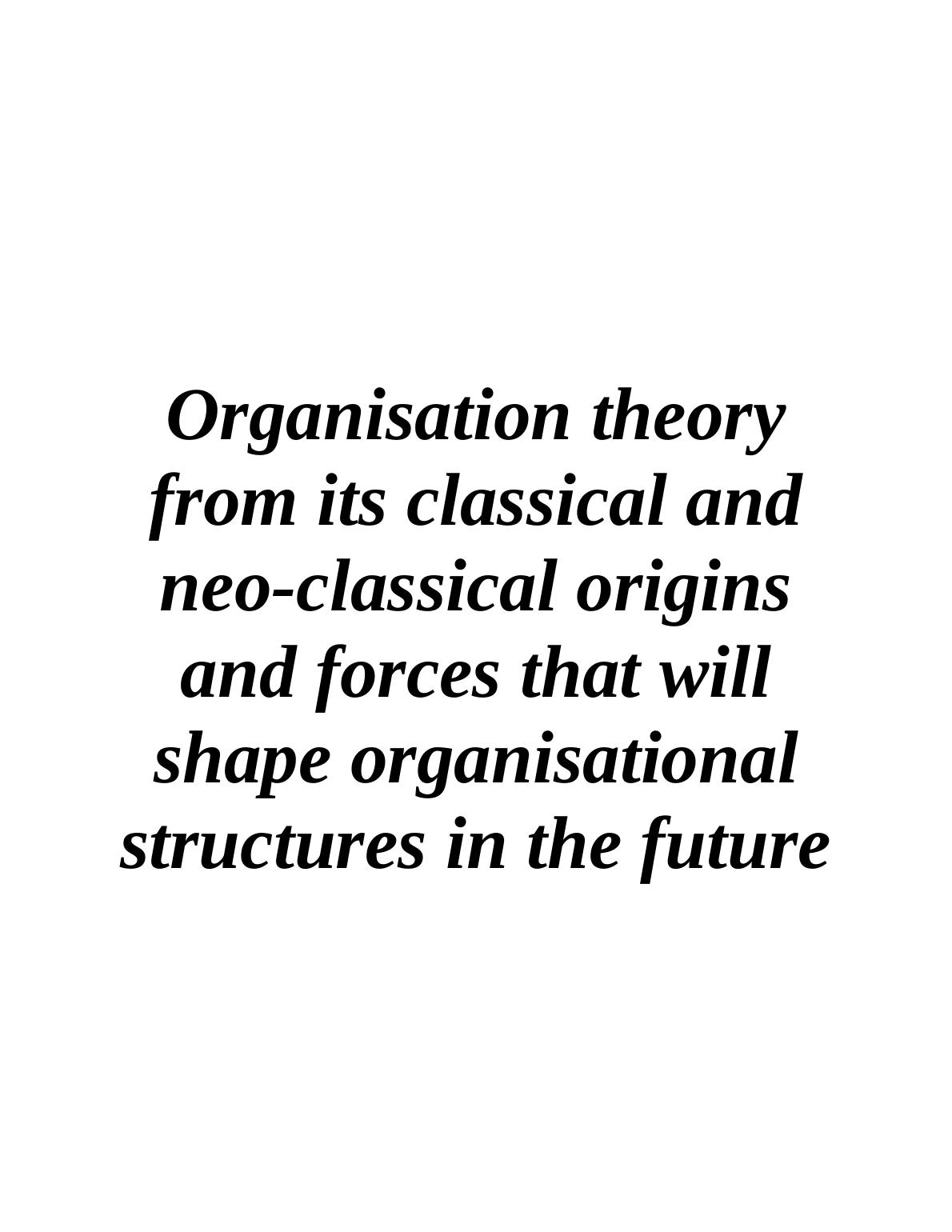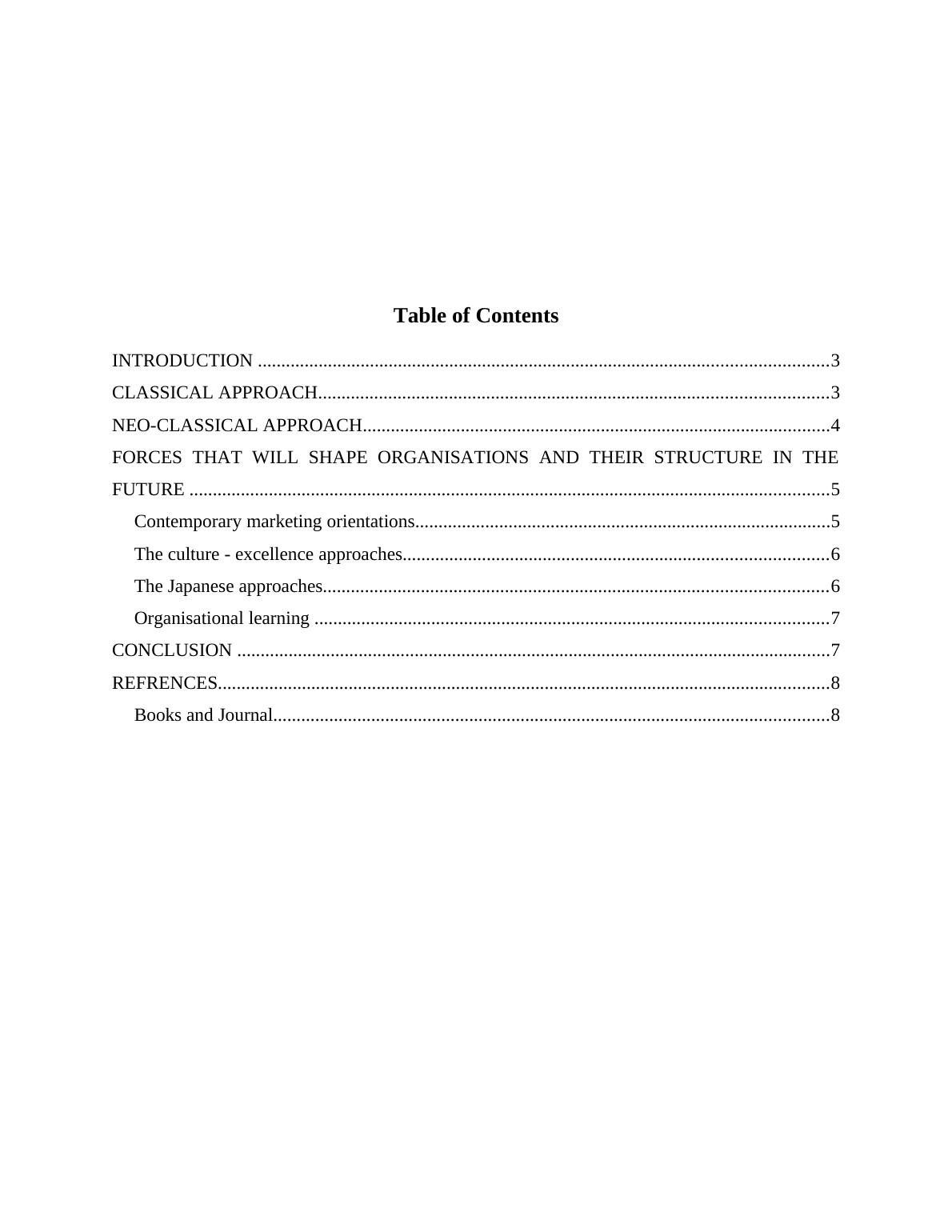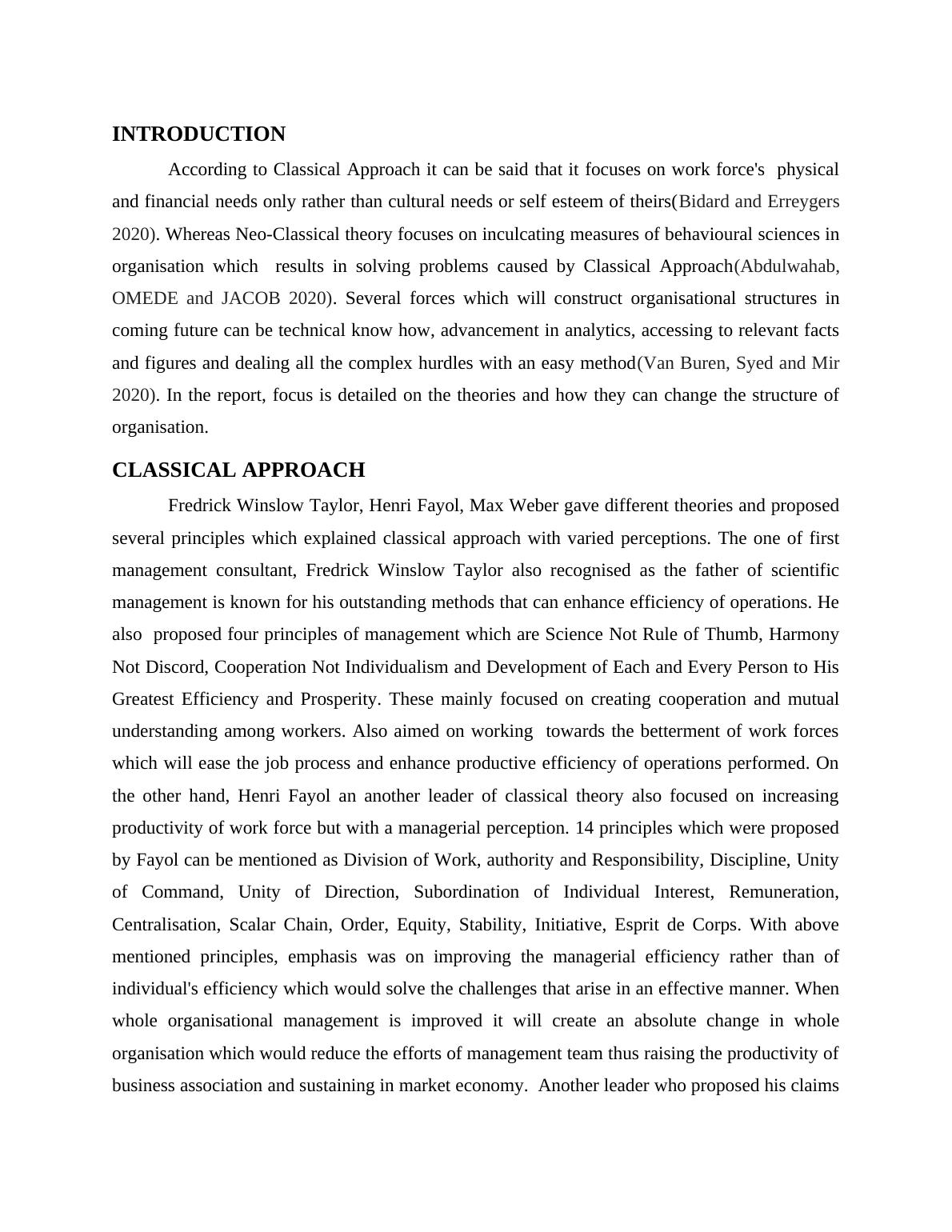Organisation Theory: Classical and Neo-Classical Origins and Future Organisational Structures
9 Pages2533 Words81 Views
Added on 2022-12-28
About This Document
This document explores the classical and neo-classical origins of organisation theory and discusses the forces that will shape future organisational structures. It covers topics such as contemporary marketing orientations, culture-excellence approaches, Japanese approaches, and organisational learning.
Organisation Theory: Classical and Neo-Classical Origins and Future Organisational Structures
Added on 2022-12-28
ShareRelated Documents
End of preview
Want to access all the pages? Upload your documents or become a member.
Organisation Theory: Classical and Neo-classical Origins and Forces Shaping Organisational Structures
|10
|2567
|1
Classical and Neo Classical Theory in Organizational Performance
|9
|2554
|52
Organisation Theory: Analysis of Classical and Neo-classical Approaches
|9
|2485
|61
Organisation Theory
|11
|2831
|97
Organisation Theory: Classical and Neo Classical Approaches
|16
|5197
|89
Organisation Theory: Classical and Neoclassical Approaches, Contemporary Marketing, Japanese Approach, Organizational Learning and Culture Excellence
|8
|2696
|254



